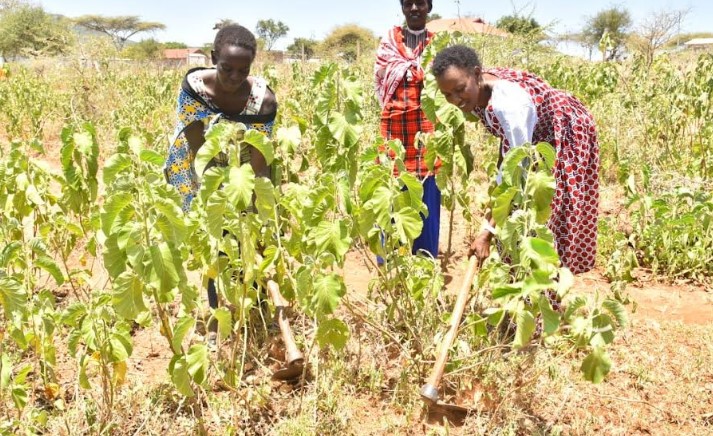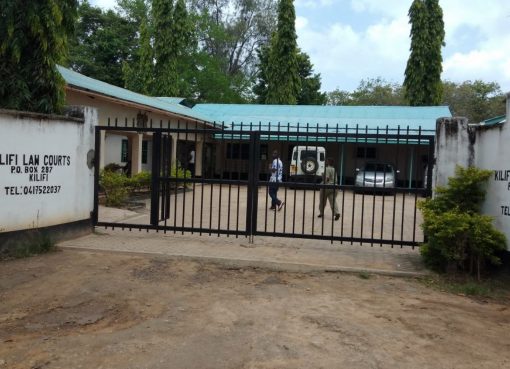Residents of the Ilng’osuani sub-location in Kajiado Central have teamed up to uproot an invasive weed, ipomoea carnea, which has invaded their grazing fields as they await the long rains.
Led by their Senior Assistant Chief, Maureen Maya, the residents come up in teams and uproot the invasive weed, also known as Bush Morning Glory, which has mushroomed in most of their grazing fields and has greatly affected the growth of pasture for their livestock.
“Several acres of the land have been invaded by the chokeweed, and this greatly affects the growth of the much-needed pasture for our animals. We have come together to uproot it before it flowers, as controlling it after it rains and it starts flowering isn’t effective,” said the Chief.

She adds that though the uprooting method is labour-intensive and time-consuming, they have no other alternative, as pasture cannot grow under the weed and the livestock cannot consume the weed either.
The senior chief also remarked that though efforts have been made to develop herbicides for the weed, none have been effective yet, thus the only option they have is to uproot it.
The weed, which is carried by stem fragments and seeds, may easily be carried by flood water to other areas. It mainly affects cattle if they consume it in large quantities and is also poisonous to goats as it affects their central nervous system.
“We have noted that once the weed matures, it’s hairy seeds are easily carried by water and they regrow once it rains, but once uprooted before maturity, it doesn’t regenerate and that is why we are uprooting it before it rains,” said the Chief.
In addition to uprooting the weed, the chief is also urging the residents to plant and nurture trees in order to mitigate climate change.
John Rakita, Ilng’osuani resident, notes that livestock forms the backbone of their livelihood and the ipomoea weed has led to substantial economic losses as they have to move their animals due to lack of pasture.
“We have lost many animals, though not directly attributed to the weed, due to the drought that is exacerbated by the presence of the weed in our grazing lands,” said Rakita.
Another resident, Faith Topoika, says that since the introduction of the weed, their workload has increased as they are forced to search for pasture for their livestock in areas which have not been invaded by the weed.
The weed, which was first detected in Kenya during the extreme El Niño rains of 1997, has spread to an estimated 3 million acres in Kajiado County alone.
In June last year, Kajiado County Governor Joseph Ole Lenku declared the invasive Ipomoea weed as a county disaster, terming it as a massive threat to pastoralism.
By Diana Meneto





